House Of Spies
The ambivalent consumption of “The Americans.”
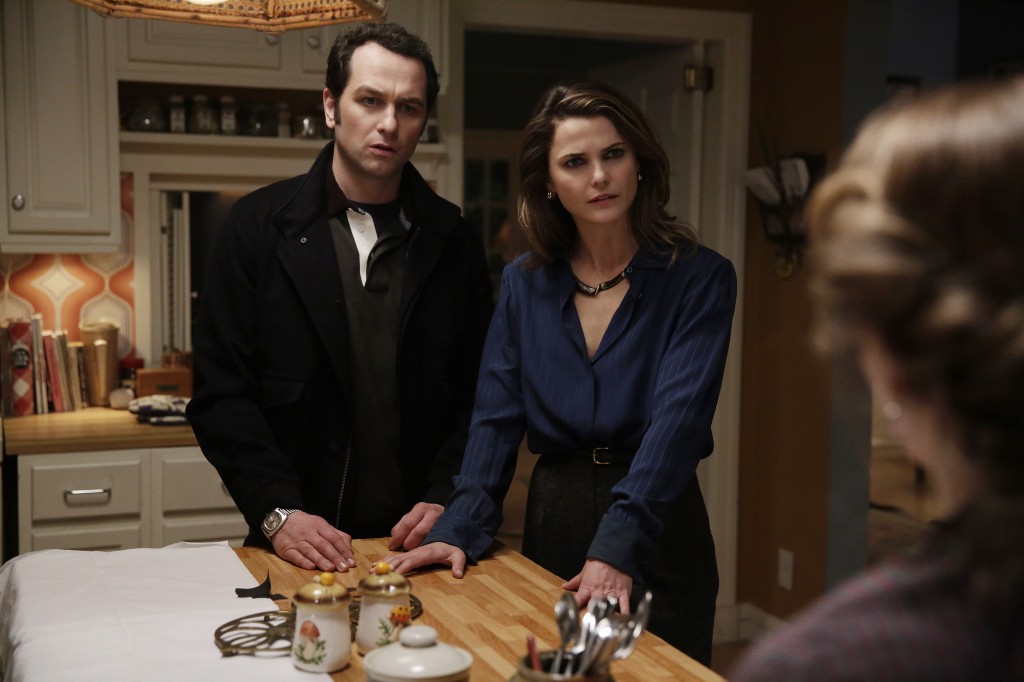
The threat of annihilation has always hung over the characters of “The Americans.” The show’s KGB spies embedded in Reagan-era domestic American life fear being imprisoned or swiftly executed. But in the show’s fourth season, Philip and Elizabeth Jennings and their children, Paige and Henry, learn of other sinister fates, which can come at you through the TV or even the fridge where you keep your six-pack of Miller High Life. (MillerCoors is the official beer sponsor of FX, the show’s network)
In a recent episode, nearly every character on the show paused to watch the 1983 TV movie “The Day After,” which portrays a Soviet nuclear attack on U.S. soil — a couple standing at the altar exchanging marital vows is incinerated into skeletons. Meanwhile, operatives are passing along stolen bioweapons, keeping the vials in their freezers. Philip suggests to Elizabeth that they withhold a new piece of intelligence — a substance American scientists devised that causes blood to ooze from one’s pores. In Elizabeth’s view, Philip has always been soft; willing to let America have something Russia doesn’t. “These are people that dropped the atom bomb — twice,” She says. “We can’t just sit in our comfortable house and pretend.”
It’s clear that the phrase Elizabeth holds in the most contempt is not “atom bomb” but “comfortable house.” While the men in her household are in thrall to the Chevy Camaro and the Commodore 64, and her daughter clings to a Bible and a Trapper Keeper, Elizabeth parrots Karl Marx with utter sincerity: “The production of too many useful things results in too many useless people.” She sees Corningware for the housewife’s triple-threat that it is: A dish that can go from the freezer to the stove without cracking, molded from a substance once found in the nosecones of antiaircraft missiles.

Diane Lederman, who designed the sets for “The Americans,” began by hypothesizing that spies wouldn’t decorate their own homes; she imagined that a separate KGB asset studied American culture and decorated the spaces to blend in accordingly. “There is absolutely an extra effort to furnish the home with whatever Americana you can to make it seem like they’re the average American family,” she said. “We have to take it as far away as possible from anything Russian.”
Lederman’s effort even extends to vintage product labels. She asks brands for the archived art files, so she can faithfully reprint the packaging of Milky Way candy bars, or jars of Jif peanut butter, like the one longed after by an FBI agent about to be extracted to the Soviet Union via Cuba. (For the 2013 Lee Daniels’ film “The Butler,” she commissioned Lenox to refire Nancy Reagan’s china pattern from 1981.)
The peanut-butter gazer, of course, would be Poor Martha, as the internet calls her. Her efficiency apartment had everything the 1980s single lady needed: plenty of wine, the Kama Sutra, a gun. If you had the sense that peering into her home each week made you something like Jimmy Stewart in “Rear Window,” spying on Miss Lonelyhearts, that was intentional, said Lederman.
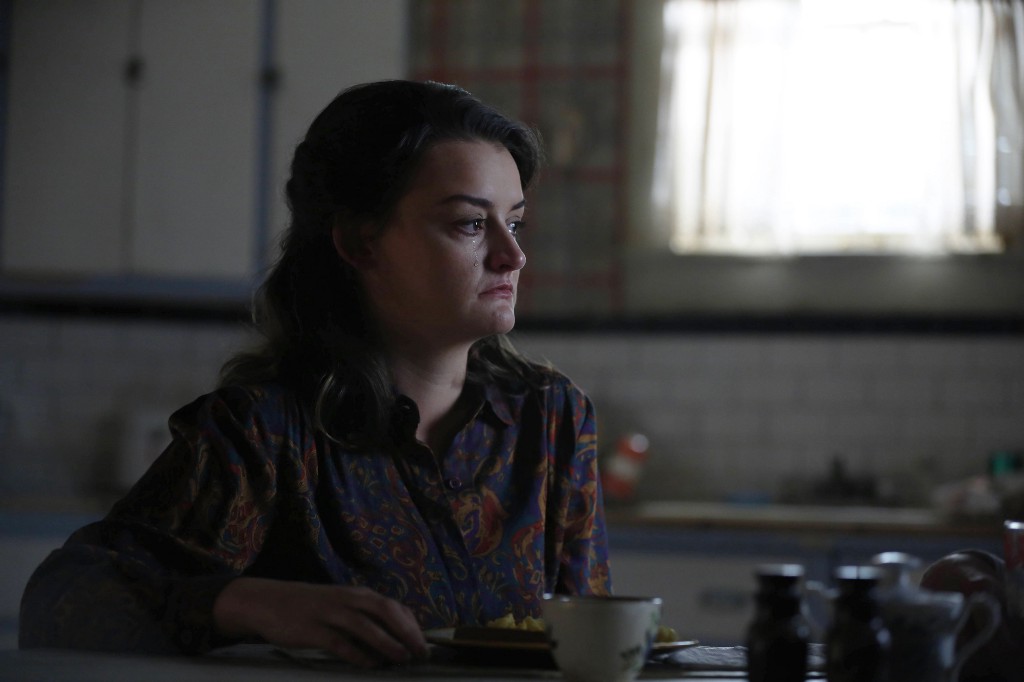
Back when Martha had her gun, fans were always calling it Chekhov’s. Part of the show’s paranoia is that every object can take on a Chekhovian inevitability. Chekhov’s Crock-Pot will simmer over, Chekhov’s Commodore 64 is transmitting a signal to the FBI, Chekhov’s Twinkie will ultimately explode. The isolating effects of chronic deception is a theme “The Americans” exploits particularly well through its objects. The more things you surround yourself with, the more they can betray you. (As for what Lederman’s sets betray about the rest of the fourth season: for the finale, she designed a communal apartment set in Moscow, seeming to hint we’ll glimpse Poor Martha again.) Only ABC’s “Blackish” rivals “The Americans” in the way its central couple punish themselves for the comforts of designer sneakers and state-of-the-art appliances. Fear of the word “bougie” is the “Blackish” equivalent of the Red Scare.

“The Americans” takes place in the Washington, D.C., suburb of Falls Church, Virginia, one of the country’s wealthiest enclaves. (Most of the exterior filming takes place around Brooklyn.) What marks the Jenningses as Other is their suspiciously small career ambitions (travel agents) and merely ambivalent consumption. Philip and Elizabeth reject the luxuries of time and experience; as of press time they still have not made good on a promise to take Henry and Paige to EPCOT.
The writer Gary Shteyngart’s mother lied to him about family vacations, too. In Little Failure, his memoir of his family’s emigration, in 1979, from Leningrad to Queens, Shteyngart recalls his mother telling him they would be staying at a Hilton during a summer trip to Cape Cod. Instead, they checked into an accommodation with “a toilet that should not really be indoors,” Shteyngart writes.
“My mother is from a country of lies, and I am still one of its citizens,” he writes. “She can lie to me at will. She can lie to me without using her imagination.” Shteyngart’s father, meanwhile, is the soft Philip Jennings to his mother’s hard-line Elizabeth. As an engineer on Ronald Reagan’s “Star Wars” missile-defense program, Shteyngart’s father was someone the Jenningses would have befriended, then betrayed. The author has said on Twitter and Reddit that “The Americans” is his favorite show.
Shteyngart experiences his adopted homeland as a glutton, gorging on TV and the foods Lederman re-creates for “The Americans”: Doritos, Ding Dongs, and frozen pepperoni pizzas. He dreams of mogul-dom, scraping together money to make over his bedroom in the style of J.R. Ewing’s office on “Dallas.” “Whenever I feel blue,” Shteyngart writes, “I stride into my so-called office, grab the expensive phone, and, with what I think is a Texas accent, shout into the receiver, ‘Hi darlin’! You just hang tight, y’hear?’”
That’s sort of the broad humor of memoir, but Shteyngart is sincere about the power we give television to guide our lives as professionals, family members, and consumers. Like the characters of “The Americans,” he, too, is traumatized by the broadcast of “The Day After.” Fearing he might be flash-blinded by a nuclear explosion like a boy in the broadcast, he goes to a department store and buys a nice pair of sunglasses. “The greatest lies of our childhood are about who will keep us safe,” Shteyngart concludes. A close second is the lie about useful things making us happy.
Kyle Brazzel writes about culture and connectedness. He lives in Brooklyn.
A Guide To Wearing Shorts
If You Are An Adult Man Who Is Wondering About What You Should Wear On Your Legs Here Is What You Need To Know

Welcome to the hot days! (If you are old enough to have watched the nightly news you will remember the traditional reminder each year around this time that “Memorial Day marks the unofficial beginning of summer,” and although it seemed dicey as the weekend crept closer, it looks as if the holiday will be seasonally appropriate after all.) What with the warm weather — it will be in the high 80’s in the New York area until Monday — it seems like a good time to go over the ground rules about grown men and short pants. Do you have questions? Let’s get you sorted.
I am a grown man. Can I wear short pants?
No.
Wait, really?
Are you a grown man or not?
Yeah, but I see plenty of guys out there in shorts.
Do they make you think, “That is the look for me,” or “That is a strange outfit for someone who is no longer a child to wear?”
So no shorts at all for guys? Isn’t that a little extreme?
It’s a lot extreme, and let me tell you why: IT IS THE ONLY LANGUAGE YOU PEOPLE UNDERSTAND. Look, there are plenty of places where shorts are acceptable for those of you who are no longer in grade to school to flash your uncovered legs: If you’re on the beach or the tennis court or at some other event in which you are expending physical energy shorts are not only appropriate but actively preferred. I might even see the argument that you can walk about in the city of a summer weekend (emphasis on weekend and additional emphasis on summer, since most of the people you’ll see then are tourists anyway and given how they are dressed anything short of assless chaps will still leave you more appropriately-attired) in an approved pair of legless trousers. But far too many of you seem to think it is perfectly fine to show up at work in cargo pants and the other abominations (half slacks, dude capris, and hotpants) that pass for legwear in our rapidly-crumbling society. You are the people who are ruining it for everyone else. You are the reason we have to say no to shorts.
Screw you, I’m going to wear what I want.
That’s totally fine. One of the great things about adulthood is the freedom it allows you to make your own decisions. If one of those choices is TO DRESS LIKE A CHILD there is nothing we can do to stop you. All we can do is gossip with everyone else about how foolish and juvenile you look, which, rest assured, we are doing. That laughter you hear on summer days is not an expression of delight with the season. It’s everyone around you mocking your calves. Just for the moment consider what sort of message you’re sending, okay? Please put on some pants, if not for yourself then for the children who will one day hopefully develop the sense of decorum you are doing so much to help erode. Thank you. Have a great summer.
Stop Shaming Shame
Less shame, more blame.
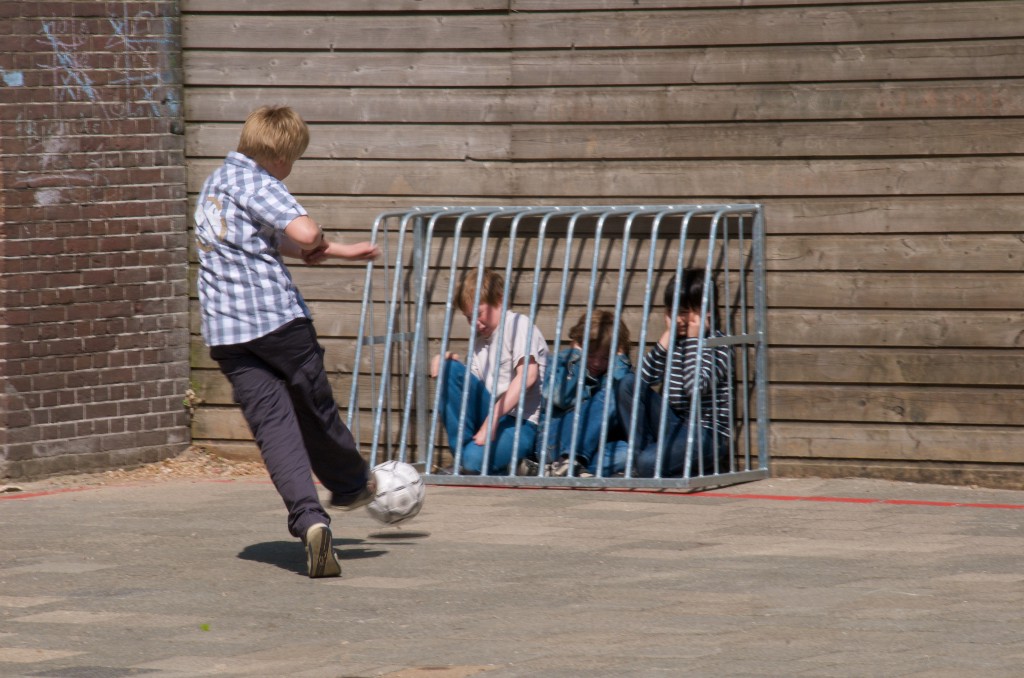
I can’t think of anything worse than having judgments about things people do and sharing those feelings with friends and acquaintances.
Only a truly vile and disgusting person would assess another person’s behavior, have a visceral reaction to it, and want to share this assessment with the largest and most vehemently agreeing group of people they could possibly find. It’s hard to imagine what anyone even gets out of the practice. A stronger sense of self? Increased feelings of what sociologists like to call “belongingness?” I mean, do people actually feel that by publicly disliking things they’re actually giving other people information about their values and personal boundaries? Give me a break.
Human beings have to stop having strong opinions about each other. They need to stop allying themselves with other human beings who share those opinions. And they definitely need to stop getting pleasure out of feeling that they are superior to others who don’t conduct themselves exactly as they do.
And what we simply cannot stand for anymore is people then forming actual groups that are essentially centered around their opinions of how to do things right, and which constantly reference, as a way of defining themselves, how other people do things wrong.
It would be relatively simple to get the entire human race on board with this. We could start young, in schools, by simply teaching kids it is not ok to make moral judgments about other people’s behavior that they then have a pressing, primal need to see reflected by other human beings. And then when people get older, and they find themselves wanting to judge other people and share those feelings, they can just remind themselves of what they learned in school, and gently coach themselves to get back on track.
We can totally beat this shame thing! And then we can get start eradicating guilt, a useless emotion! What possible good could come from having lingering, unpleasant feelings of regret about a past action? And anger! Another silly one. What could be stupider than allowing your adrenaline to rise and your sense of safety to feel compromised when someone personally threatens you or does something you consider outside the social contract?
There is no reason for human beings to go on behaving as we have.
A Poem By Kelly Schirmann
The New World
I am deep in the luxury of my mental world
where the world is not what we have created
I am incapable of taking care of myself
so I am incapable of taking care of a child
so I will spend my life alone
with the brunt of my mind
aimed fully at myself
I want to meet one good person
on earth, just walking the street
with no prepared speech
or weapons of emotional exaggeration
It’s no one’s fault
these weapons were created
Objects and the desire for objects
are papering the walls of my luxury
and no breathing can be allowed in
I am breathing
in a marble coffee shop downtown
where the air is sweet with fantasies of money
but not mine
Money is only made by mining
By cutting something out of the ground
before anyone else gets to it
Which is to say / before it matures
People mine their own thoughts
before the thoughts are finished
They are given to the New World
designed to house them
There is no approximation of the sun
though we approximate it with technology
The sweet air is too heavy
with its own fantasy
The marble is a place to lay your head
when the mining becomes too difficult
I am resting and listening
to the youthful voices approximated
and singing as one
To be replaced as they are degraded
like clothing or food
or youth
And to enter the luxurious mind
in the same way
Approximating ritual, or self-love
or anything worthy of our actual
and beautiful selves
Kelly Schirmann is a writer, artist, and musician from Northern California. She is the author of Popular Music, a collection of poems and essays about self and culture. She lives in Portland, Oregon, and at kellyschirmann.com.
The Poetry Section is edited by Mark Bibbins.
Weval, "You're Mine"
If I were a billionaire I would use my vast fortune to fund a life of leisure, learning and a nonstop embrace of the few good things that life has to offer that those of us who scramble to earn our living each day lack the resources and time to fully enjoy. This is probably why I am not a billionaire, because apparently the same drive that causes you to accumulate billions of dollars also compels you devote time (the most valuable asset being a billionaire awards you!) and energy in the service of revenge, which is the saddest kind of sickness. If I had enough money to do whatever I wanted the first thing I would do is forget anyone who ever vexed me, which would be easy because, being a fucking billionaire, I would never need to think about them ever again. They wouldn’t matter, if they ever even did. But again, I’m not a billionaire, so I guess I’ll just keep reminding myself that at least I am not driven in the single-minded pursuit of something so empty and embarrassing that it twists me up in so many other ways. Anyway, fuck do I know? Here’s some music. Enjoy.
New York City, May 24, 2016

★★★ Layers of waterproofing—rain jackets, umbrellas, a stroller cover—crammed into the elevator. The earlier rain had nearly stopped but only patient reasoning, over a distance of blocks, could convince the four-year-old that it was better to walk quickly with the umbrella down than to walk slowly with it raised. A used diaper had broken open on the sidewalk, spilling its contents and absorbing ambient water till it had bloated into an ingot. At 18th Street, surprising sunlight was coming down the subway steps, accompanied, to compound the surprise, by rain. An hour and a half more and the rain had subtracted itself. A man strolled down Fifth Avenue in early afternoon sunshine, striking the pavement with a furled umbrella as he went. Lugging the rain jacket home promised to be demoralizing, but then the late afternoon got as dark as the early part had been bright. Under the clouds, from behind the apartments in the west, a wild shapeless glow spread. Once more, the sun was wringing the most out of its lingering descent. Sharp blazing contours formed out of the bright blur. Every few minutes there was something new to exclaim about.
Goodbye Internet
Hello, internet.

There is an argument to be made that some of the people who are in favor of lowercasing the “i” in “Internet” — the New York Times announced yesterday that they were the most recent publication capitulating to the seemingly inevitable trend — are the very same ones who have an interest in making the Internet seem like everything else so that they can continue to devalue its promise and exploit its weaknesses without being called to account for the terrible things they are doing in furtherance of their amoral goals.
It is no coincidence that some of the biggest proponents of a small-i Internet are the people you so frequently see urging acceptance of the worst kind of click-hungry, semi-literate (but always relatable) “content” optimized for nothing other than traffic and reach. They aren’t interested in what they are promoting — How could they be? It is reverse-engineered garbage that they don’t care if you read so long as you share — but they do need you to buy into their cynicism of “this is what people want on the internet” and “this is how everyone does it now” so that complaining about seems like arguing against common sense. If we all are on the same side here on the uncapped Internet, no one really has to feel bad for the part they are playing in producing or promoting the kind of base-level product with which we are inundated each time we stare into a screen.
“For younger people, it’s always been there; it’s like water,” says Associated Press standards editor Thomas Kent in support of treating the Internet like any other proper noun that has become decapitalized, and that at least is an argument I understand: Kids today are idiots and they don’t realize that there was a time when we weren’t all wallowing in this giant pool of shit that is constantly topped up with newer and warmer shit so that we never stop to think about just how foul and fetid our surroundings really are. It’s almost cruel to offer them the awareness that the Internet was different at some point, because the cynics have already won: As the maxim goes, “If you think The Internet is terrible now, just wait a while.” Why taunt young people with the idea that the Internet didn’t always treat you like a tap-happy moron whose only purpose is to be another sad sucker on the lowest rung of the Ponzi sharing scheme that the Web turned out to be? It’s just cruel.
That said, I felt the same way about the hyphenectomy they performed on e-mail a few years back, and even though it still feels wrong to me when I type out “email” — TRY PRONOUNCING IT PROPERLY, YOU ARE SAYING “em-ail,” WHICH IS NOT A THING — I do it, just because when it comes right down to it everything that I have learned over the course of my existence is that language is lies, the self-interested always come out on top and in the end what does it matter? Whether or not I become the last holdout for a properly capitalized Internet or not I don’t kid myself that it will make a difference: Nothing does. Go ahead with your “internet.” It won’t make you any happier, but at least you won’t have to feel as ashamed when they pour the next pot of heated shit slurry into it.
The Somali Potentates of Suburbia
A number of Somalia’s separatist states are run by diaspora groups in the Midwest.

In the spring of 2011, dozens of Somalis packed into an event hall to celebrate the impending election of the first government of their one-year-old separatist movement. A middle-aged man in a yellow cardigan and gray sport coat swayed at a podium, singing along to tinny Somali pop, flanked by portly men in suits dad-dancing. Behind them, young men bounced, waving the baby blue-and-white flag of their homeland: Awdal State, in the northwestern corner of Somalia.
But Awdal State wasn’t declaring independence from Somalia. It was declaring independence from Somaliland, a secessionist movement that’d declared its independence from Somalia two decades prior. And the Awdalites didn’t want their own independence. They wanted autonomy (including their own president) within Somalia. And when I say “Awdalites,” I don’t actually mean people in Awdal. The hall with all those awkward dancers was in Minneapolis, Minnesota. The government election later that year took place in London. And the president they wound up electing was a middle-aged dude living permanently in Ottawa, whose day job was stuffing flyers into a local paper.
The Awdal State saga is convoluted, but that’s par for the course in Somalia, which is not so much one nation as a nesting doll of self-declared states within states, a fair number of them run not by locals but by diaspora Somalis. These faux-parliamentarians believe they’re helping their kin back home; often they have real grievances. Still, it’s tempting to write most of these states off as ineffectual nationalist bluster from bored burb dwellers. But sometimes for folks on the ground, they’re just a headache.

It’s hard to say how many of these statelets and sub-states there are. Over the last decade they’ve popped up and down like whack-a-moles; at the height of the self-proclaimed state craze around 2012, Somali wonks estimated there might be 30 to 50 movements vying with the U.N.-backed nation of Somalia and each other. Even within Awdal, itself just one of several separatist movements within the Somaliland bloc, some have advocated for sub-regions to break away as autonomous units of Somaliland.
The Awdalite diaspora’s literature makes standard nationalist nods to the region’s history of independence. The sixteenth-century kingdom of ’Adal nearly conquered Ethiopia (before a surprise cameo by Vasco da Gama’s son, Cristòvão, and a contingent of musket men, fouled things up). But the real source of their discontent, and of a previous feint at independence in 1995, is complex clan politicking.
To wildly abbreviate: Awdal’s dominant Cissa and Gadabuursi clans were party to the talks that created an independent Somaliland decades ago. But many believe they were strong-armed into that effort by the violence of the Isaaq clan at the heart of Somaliland; there’s some evidence that Isaaq massacred hundreds to thousands in the region, during the rise and height of Somalia’s anarchy in the late eighties and early nineties.
Somaliland’s previous locally recognized president was Dahir Rayale Kahin, a Gadabuursi — and a signal that his people weren’t totally boxed out of power in the independent regime. But Awdal State boosters claim the Isaaq still hold unequal power, and that Somaliland’s current Isaaq president, Axmed Maxamed Maxamuud “Siilaanyo” discriminates against their clansmen, limiting their role in the government and the flow of aid and development projects to their towns. An Ottawa-based member of the self-declared Awdal Senate said in 2013, “Siilaanyo and his gangs… suck the blood of their people and hide themselves with a dream of separating from Somalia and establishing a one clan government of the people of Isaaq.”
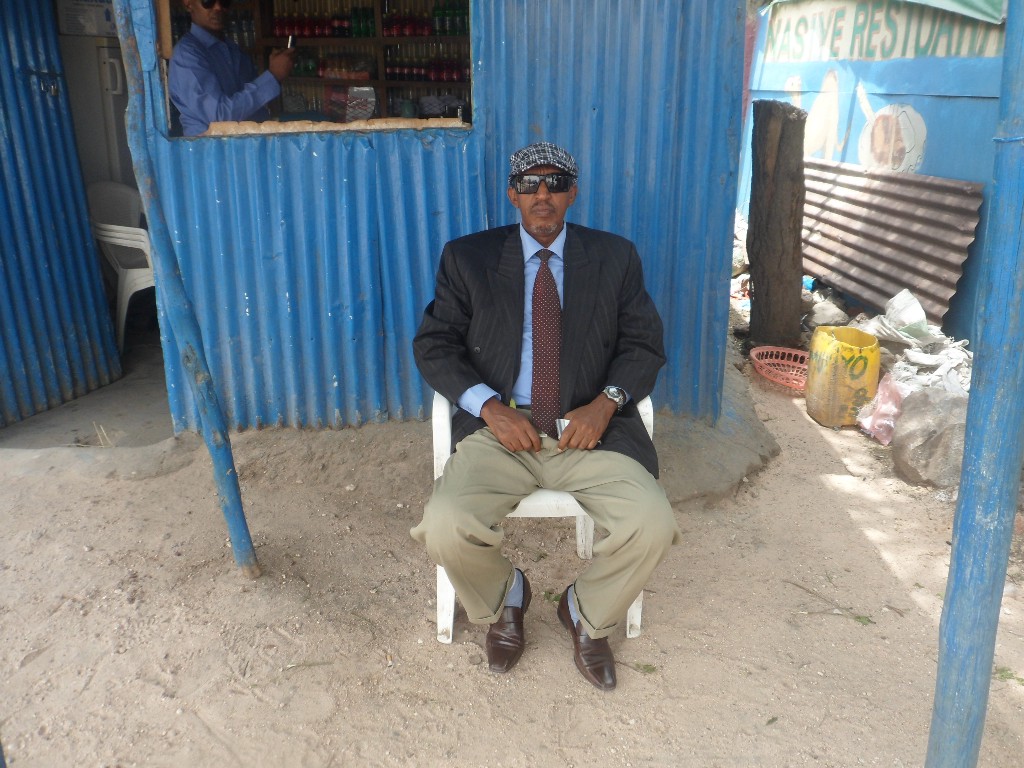
For all the gravity of its founders’ claims, the Awdal State doesn’t always seem to have been well thought through. In a 2010 editorial in the Somali-centric Suna Times, Suleiman Abdi Dugsiye, an early pro-Awdal State advocate in Ottawa, wrote, “In today’s global politics, the easiest [thing] to do is to declare independence, erect the flag, name the born republic and wonder [sic] around the around [sic] for recognition… we have the land, the flag, the elites to lead the land, and the ability and the know-how to wonder [sic] around the world and ask the nations for recognition.”
The aforementioned Ottawa-based Awdal senator claimed that ninety-five percent of all Gadabuursi, not just in the diaspora but on the ground as well, support the movement. And Abdi Darar, of Awdal Online (a now-defunct site whose URL links off to the Twitter account of a different Somali man in Sweden), told me I could find advocates of the state in every major city in Somaliland. But in 2013, when I asked to meet with local supporters in Awdal, both men demurred. The senator told me no one would dare to speak out in favor of the movement because of the pervasive fear of the Isaaq, which also prevented him from giving me any names. Darar told me the diaspora would answer all my questions. They didn’t.

I recently asked Hussein Hassan of Borama Online, a popular Somali-language news site based in Awdal, if he’d ever met any local supporters of the state. I could hear his eyes rolling over the phone. Hassan said that locals are peeved about power-sharing issues. Like most people in Somalia, he welcomes diaspora involvement in the region for aid and development. But he sees the diaspora Awdal State as a quixotic effort. “They don’t have anything [any power] to push the people who’re living here to [oppose] Somaliland,” he said. According to Marcus Hoehne, a specialist on the region at the Max Planck Institute for Social Anthropology, there’ll be a demonstration on the ground in Borama every now and then, but no one supports the diaspora-backed government. They just want assurances that they’ll get more development and representation.

For all its hokey and inconsistent flag designs, poorly maintained web presence, and bizarre recent media spots — for all its resemblance to a press-release mill — the Awdal State movement still riles up Somaliland supporters, some of whom paint it as some big threat. That’s because some separatist and sub-separatist movements really are major concerns.

Take another pro-Somalia, anti-Somaliland movement: Khaatumo State. Formed in 2012, Khaatumo was likewise born of clan grievances. The local Dhulbahante people thought they were getting dicked by Puntland and Somaliland, both of whom claimed authority over their lands, and figured they’d be better off as an autonomous part of Somalia proper. Unlike Awdal, locals have been willing to fight, taking up arms in periodic skirmishes for about half a decade now.
Khaatumo State was founded in Taleh, the one-time capital of the early twentieth century Dervish State insurgency, by local elites, a fact which likely accounts for their ability to mobilize physical and sustained regional resistance. But its foundational meeting was heavily coordinated and attended by members of the diaspora. Ever since, a diverse array of diaspora groups, from California to Columbus, Ohio, have supported the movement, providing political advocacy, sponsoring developing projects, and offering murkier support as well. Osman Hassan, the head of one of many pro-Khaatumo support groups, said they still play a huge part in the movement, down to choosing leaders.

Khaatumo has managed to stall oil exploration in their territory. They’ve caused headaches for Somalia proper, claiming to be a part of the nation while waging war against Puntland, which also sees itself as part of the recognized country. Somaliland intelligence has also claimed that the Khaatumo conflict has created a safe haven for Islamist terrorists. (It’s unclear whether those claims are an attempt to discredit the movement or a real concern, but the mere mention of jihadi violence potentially threatens aid and development action.)
The diaspora Awdal State can’t cause as much immediate trouble on the ground as Khaatumo. But by publishing claims that Somaliland harbors al-Shabaab terrorists and that they can’t control their claimed territories, the Awdal State movement makes it almost impossible for Somaliland to legitimize itself. And by claiming they’re part of Somalia, they make it hard for that government to work out its differences with Somaliland.
Awdal does have real grievances, and with diaspora Somalis playing a large part in redrawing the internal lines of the UN-backed state, it’s only logical for everyone to try to carve out a slice of nation that’ll benefit their interests.
But you’ve got to wonder what the part-time, long-distance heads of Somalia’s breakaway-within-breakaway states hope to achieve with their flags and press releases. It’s hard not to see these movements as impractical-to-flippant-to-harmful. It’s something I’d love to talk to Awdal State’s president about. But he’s left his job at the Ottawa Citizen’s mailroom and I’m having a hell of a time tracking him down.
Mark Hay is a freelance writer living in Brooklyn.
Cabin on the Lake
Hank Williams catalogs the shapes and sounds of loneliness.
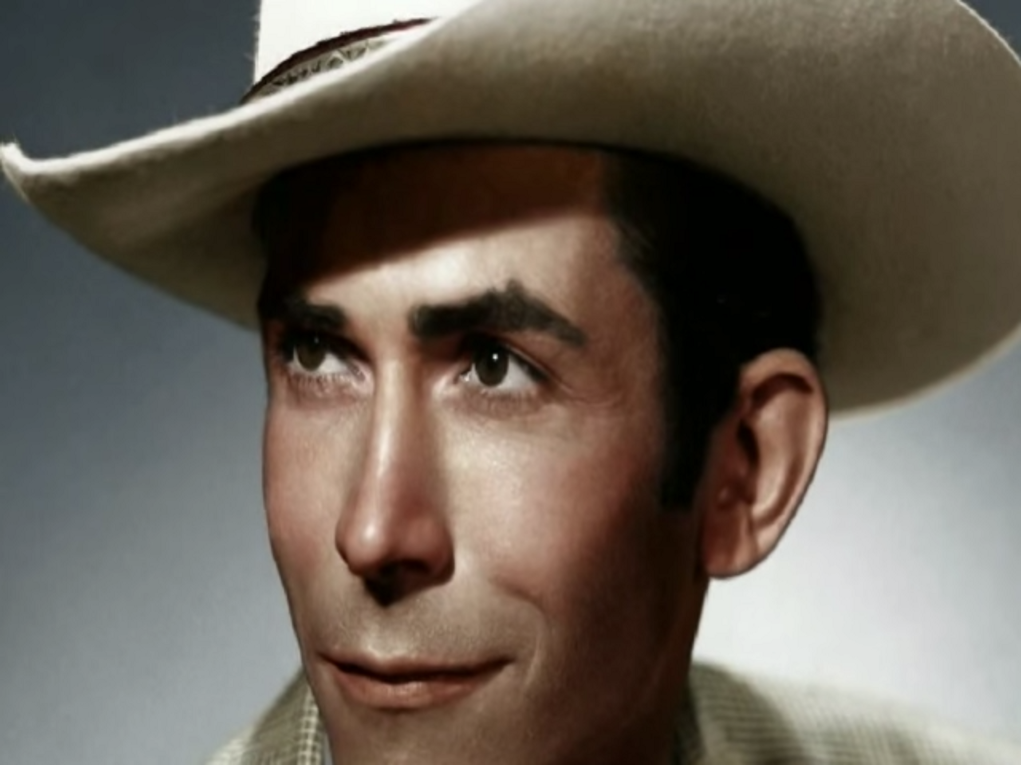
Loneliness is liquid. It fills whatever container it can: pouring across a night or any number of days, spilling into weeks or even months, sloshing into whole years if you let it. No one understood the liquid properties of loneliness better than Hank Williams, who wrote an anthem of anguish for that fluid feeling. It was 1949, and Williams wasn’t alone, but he was lonely. His wife’s cold, cold heart had left him chilly, so he did what any songwriter does: he wrote a song.
“I’m So Lonesome I Could Cry” catalogs some of the shapes and sounds of loneliness. The song’s opening chord twangs the feeling of being alone immediately into existence, conjuring so perfectly the endlessness of how it feels to feel lonely that it’s only counterpart is its opposite: the orgasmic optimism of Joan Jett’s “ah” in the first second of her cover of “Crimson and Clover.” You know right away that this is the soundtrack of a lonely heart — a man on his own, alone on his own island.
But he’s not really alone, there are other solitary sojourners, too: some birds, a nighttime train, a weeping moon, dying leaves, a shooting star, and a purple sky. Williams hears his loneliness echoed by a whippoorwill too blue to fly and a train so quiet that not even its whistle sounds; he sees it in a moon hidden by clouds and a robin whose tears mourn the changing seasons. The singer has found himself in a world without any human companionship. Not even a falling star, that wishing object of crossed lovers and lost sailors, can sustain a wish: its light only makes him “wonder where you are.”
The “you” is never named, and it’s not even clear how far, if far at all that “you” is from the singer. The song turns partly on the ability of loneliness to drown the way water can: not with fathoms, but a few inches. Hank Williams sings of the kind of lonesome you can be when the one you love is right by your side: a fight can make your man feel miles away even though he’s sitting at the table beside you; work carries your woman across the universe while she’s working at a desk across the room from you. You don’t need eternity to have come between you and love to feel lone, and sometimes you feel it most when you aren’t alone.
“I’ve never seen a night so long,” Williams howls in the second verse, and damned if you don’t believe it. He’ll say three times before the song is over that “I’m so lonesome I could cry,” but you really only needed to hear it once. Thirty seconds in and we already know for sure that we’re in the room where Mrs. Ramsay knits while her husband reads, sensing he wants her to say she loves him, but refusing, in the field where Ruth “stood in tears amid the alien corn,” eavesdropping with Prufrock on those mermaids who sing “each to each.” By the song’s final verse, “I’m so lonesome I could cry” has become a kind of spell, only the third time isn’t a charm, but a curse: Williams didn’t die of loneliness, but from another kind of liquid.
Earlier this year, I was down around where Williams tried to get clean and sober the summer before he died. He’d been fired by the Grand Ole Opry, and came to Lake Martin to dry out, but it was in nearby Alexander City that he’d be photographed all gaunt and ghostly, sad and shirtless on his way out of jail after an arrest for drunk and disorderly conduct. Williams did manage to write some songs in his cabin on the lake, including one about a lonely wooden Indian, and he recorded them in September of 1952, but by the end of the day on the first day of 1953, he was dead.
Casey N. Cep is a writer from the Eastern Shore of Maryland.
Soundscan Surprises, Week Ending 5/19
Back-catalog sales numbers of note from Nielsen SoundScan.

Huge week for the ’90s. YUGE. I’ve added in the release dates for emphasis.
5. THIRD EYE BLIND THIRD EYE BLIND 6,897 copies (April 1997)
6. GOO GOO DOLLS DIZZY UP THE GIRL 5,549 copies (September 1998)
11. PANTERA VULGAR DISPLAY OF POWER 4,197 copies (February 1992)
27. BRANDY NEVER SAY NEVER 2,741 copies (June 1998)
62. QUEEN PLATINUM COLLECTION 1,799 copies (November 2000)
91. EMINEM SLIM SHADY 1,559 copies (February 1999)
173. N.W.A. STRAIGHT OUTTA COMPTON 1,108 copies (August 1988)
189. HALL & OATES VERY BEST OF DARYL HALL & JOHN OATES 1,051 copies (January 2001)
(Previously.)
